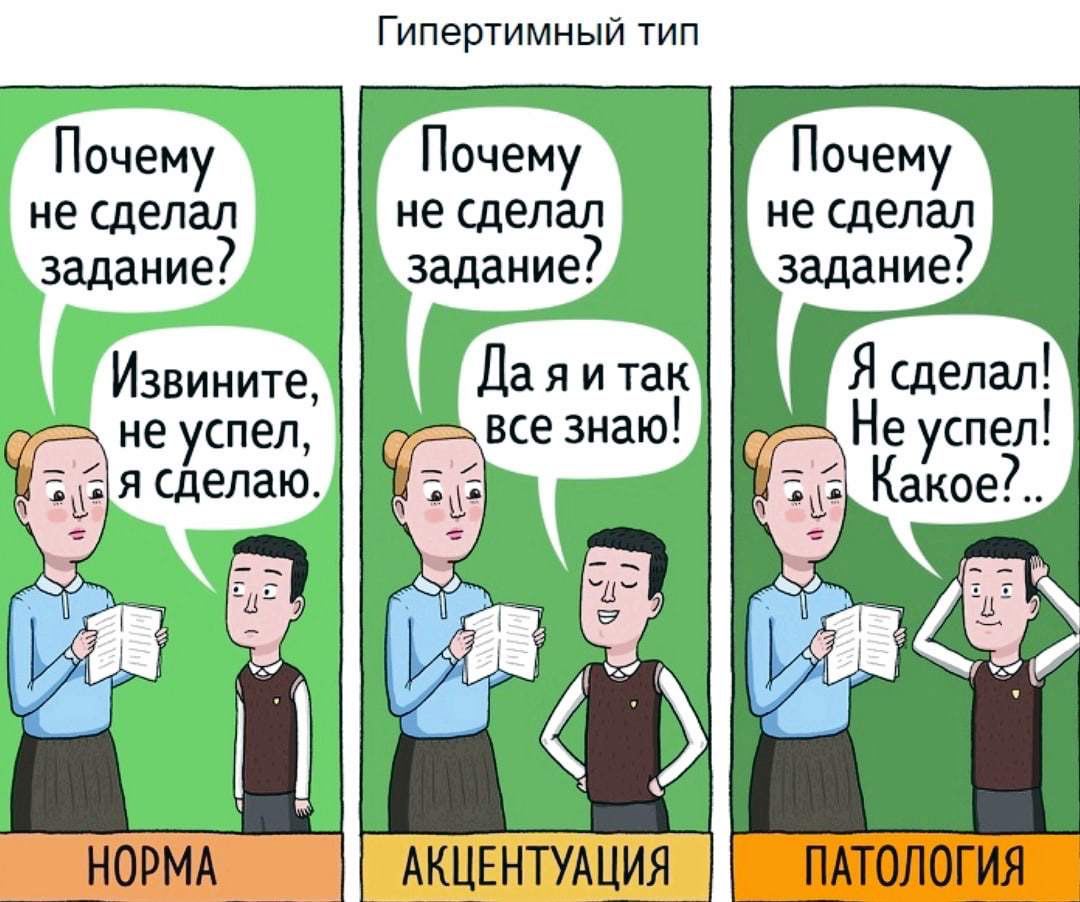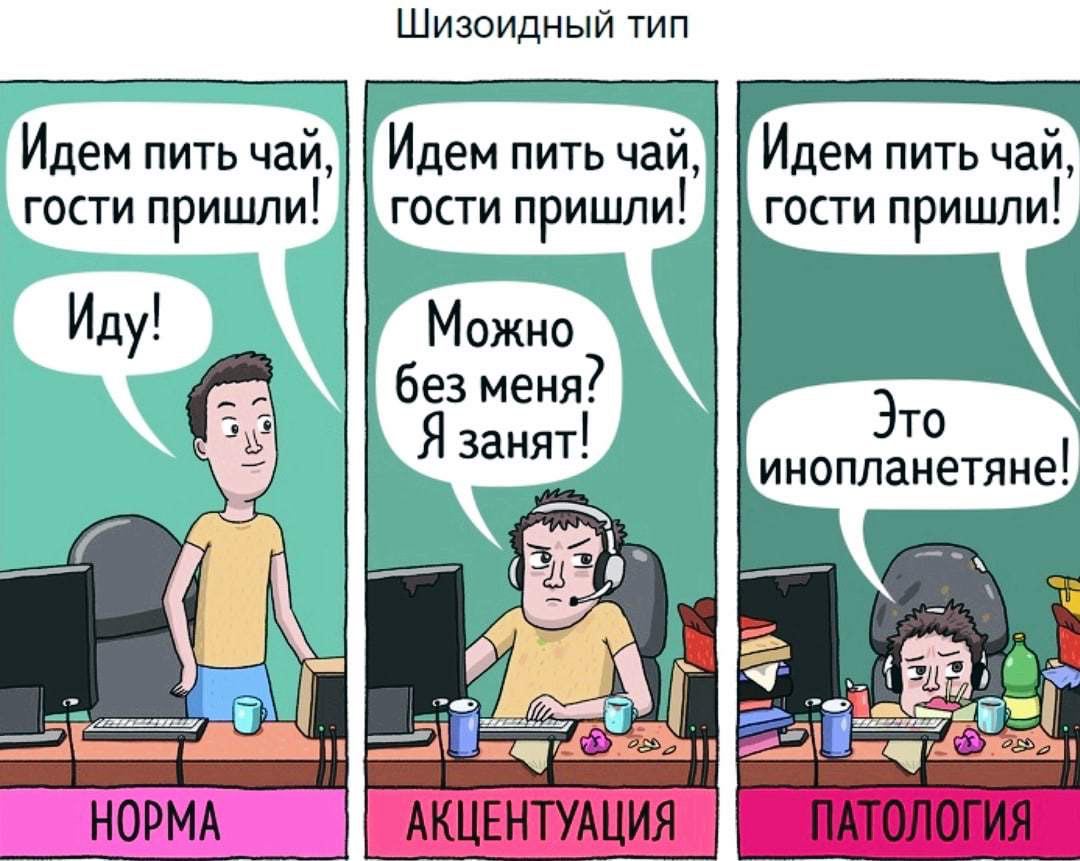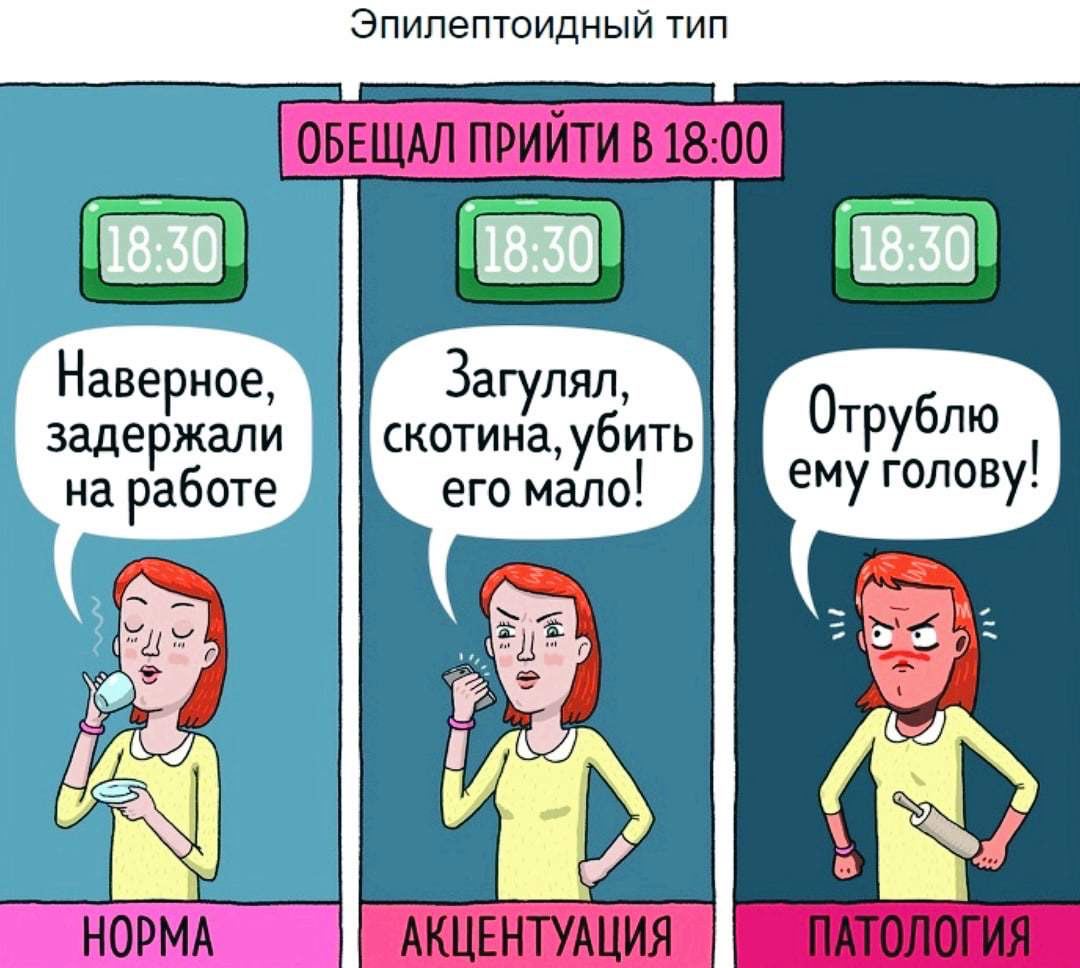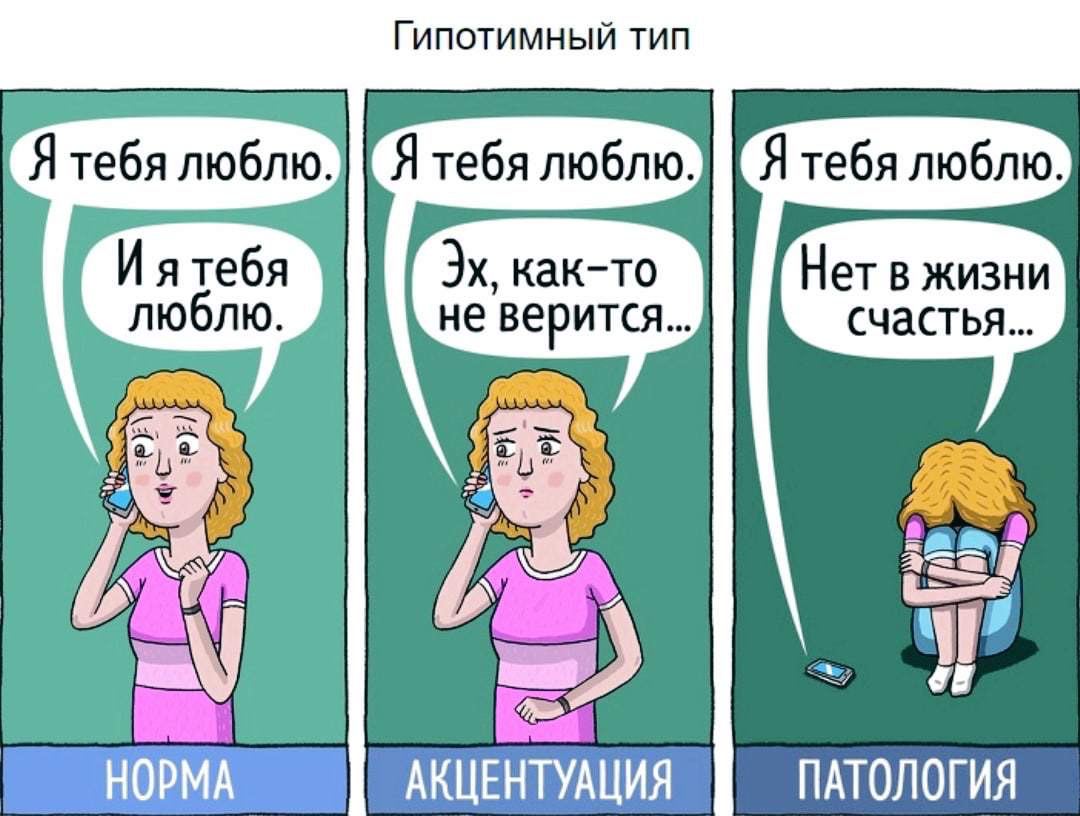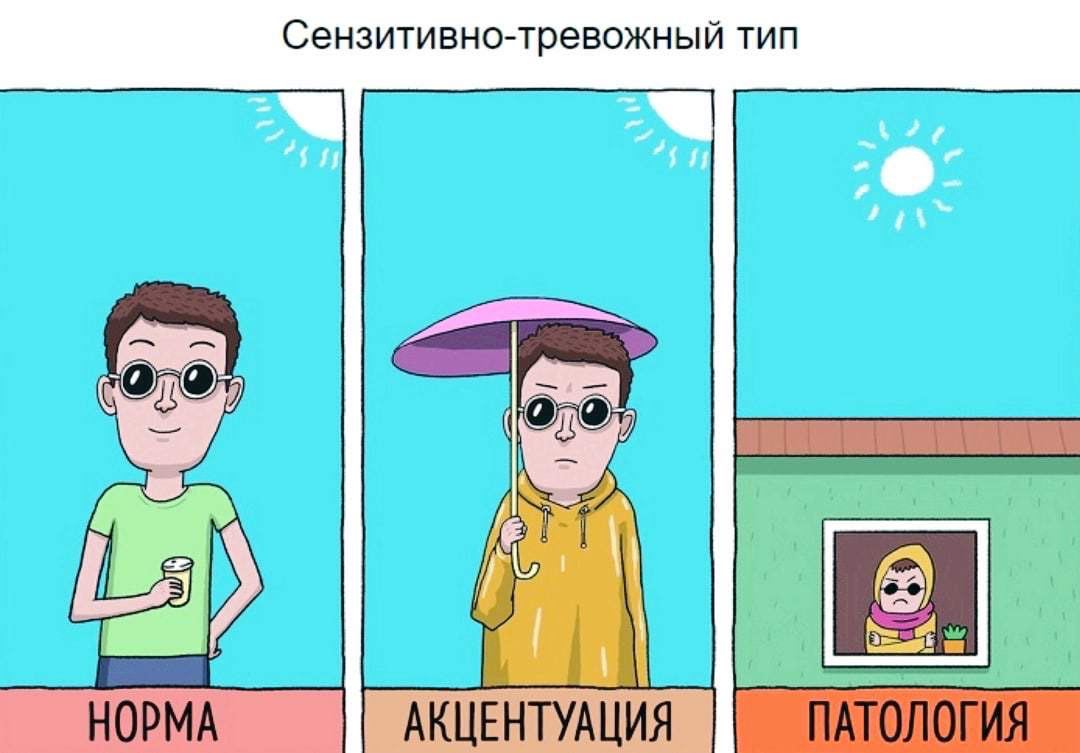AF
Size: a a a
2020 September 18
Кто-нибудь посмотрел интервью Дудя с Нехта? У меня промелькнула мысль о психопатии
не, не смотрел и не планировал. а надо?
เ
Просто в целях анализа личности
AF
Просто в целях анализа личности
Взгяну краем глаза. если понравится, задержусь
2020 September 19
SS
NT/ How the brain creates the experience of time
- On some days, time flies by, while on others it seems to drag on. A new study from JNeurosci reveals why: time-sensitive neurons get worn out and skew our perceptions of time.
- In years to come, our personal memories of the COVID-19 pandemic are likely to be etched in our minds with precision and clarity, distinct from other memories of 2020. The process which makes this possible has eluded scientists for many decades, but research led by the University of Bristol has made a breakthrough in understanding how memories can be so distinct and long-lasting without getting muddled up.
- Scientists identified key brain circuitry that plays a role in the mysterious experience called dissociation, in which people can feel disconnected from their own body and from reality.
- Humans, like other animals, have the ability to constantly adapt to new situations. Researchers have utilized a mouse model to reveal which neurons in the brain are in command in guiding adaptive behavior. Their new study contributes to our understanding of decision-making processes in healthy and infirm people.
- New research at Washington University School of Medicine in St. Louis helps illuminate a surprising mind-body connection. In mice, the researchers found that immune cells surrounding the brain produce a molecule that is then absorbed by neurons in the brain, where it appears to be necessary for normal behavior.
- Researchers have conducted a study that has determined the role that a critical protein plays in the development of hair cells. These hair cells are vital for hearing. Some of these cells amplify sounds that come into the ear, and others transform sound waves into electrical signals that travel to the brain.
- As information flows through brain’s heirarchy, higher regions use higher-frequency waves. Study also finds specific frequency bands of brain waves associated with encoding, or inhibiting encoding, of sensory information across the cortex.
- The brain’s visual cells are variable, but we perceive a world that is sharp and colorful. How does the brain cut out noise from its visual inputs? New research has the answer.
- A new study has detailed the damaging role played by the immune system in a severe brain condition most commonly caused by the cold sore virus.
- A genetic predisposition to late-onset Alzheimer’s disease affects how the brains of young adults cope with certain memory tasks. Researchers from the German Center for Neurodegenerative Diseases (DZNE) and the Ruhr-Universität Bochum report on this in the scientific journal Current Biology. Their findings are based on studies with magnetic resonance imaging in individuals at the age of about 20 years. The scientists suspect that the observed effects could be related to very early disease processes.
- A research group has now developed a hypothesis whereby iron deposits in the brain — resulting from alcohol-induced vitamin B1 deficiency — can be regarded as key factors in cognitive decline.
#NT https://medium.com/paradigm-fund/nt-how-the-brain-creates-the-experience-of-time-5a99aad2aed6
Neuroscience biweekly vol. 15, 4th September — 18th SeptemberTL;DR
- On some days, time flies by, while on others it seems to drag on. A new study from JNeurosci reveals why: time-sensitive neurons get worn out and skew our perceptions of time.
- In years to come, our personal memories of the COVID-19 pandemic are likely to be etched in our minds with precision and clarity, distinct from other memories of 2020. The process which makes this possible has eluded scientists for many decades, but research led by the University of Bristol has made a breakthrough in understanding how memories can be so distinct and long-lasting without getting muddled up.
- Scientists identified key brain circuitry that plays a role in the mysterious experience called dissociation, in which people can feel disconnected from their own body and from reality.
- Humans, like other animals, have the ability to constantly adapt to new situations. Researchers have utilized a mouse model to reveal which neurons in the brain are in command in guiding adaptive behavior. Their new study contributes to our understanding of decision-making processes in healthy and infirm people.
- New research at Washington University School of Medicine in St. Louis helps illuminate a surprising mind-body connection. In mice, the researchers found that immune cells surrounding the brain produce a molecule that is then absorbed by neurons in the brain, where it appears to be necessary for normal behavior.
- Researchers have conducted a study that has determined the role that a critical protein plays in the development of hair cells. These hair cells are vital for hearing. Some of these cells amplify sounds that come into the ear, and others transform sound waves into electrical signals that travel to the brain.
- As information flows through brain’s heirarchy, higher regions use higher-frequency waves. Study also finds specific frequency bands of brain waves associated with encoding, or inhibiting encoding, of sensory information across the cortex.
- The brain’s visual cells are variable, but we perceive a world that is sharp and colorful. How does the brain cut out noise from its visual inputs? New research has the answer.
- A new study has detailed the damaging role played by the immune system in a severe brain condition most commonly caused by the cold sore virus.
- A genetic predisposition to late-onset Alzheimer’s disease affects how the brains of young adults cope with certain memory tasks. Researchers from the German Center for Neurodegenerative Diseases (DZNE) and the Ruhr-Universität Bochum report on this in the scientific journal Current Biology. Their findings are based on studies with magnetic resonance imaging in individuals at the age of about 20 years. The scientists suspect that the observed effects could be related to very early disease processes.
- A research group has now developed a hypothesis whereby iron deposits in the brain — resulting from alcohol-induced vitamin B1 deficiency — can be regarded as key factors in cognitive decline.
#NT https://medium.com/paradigm-fund/nt-how-the-brain-creates-the-experience-of-time-5a99aad2aed6
2020 September 20
PS
Очаровательно просто ;-)
ИА
Отлична идея для нового комикса, но с 7 радикалами
AF
Отлична идея для нового комикса, но с 7 радикалами
Сделай, а? А то у меня не хватает времени, чтобы хотя бы свои идеи реализовывать?
IV
Сделай, а? А то у меня не хватает времени, чтобы хотя бы свои идеи реализовывать?
👍
АА
Супер!
AF
Результаты голосования в Инсте об эфирах. Что ж, будем делать 😉





